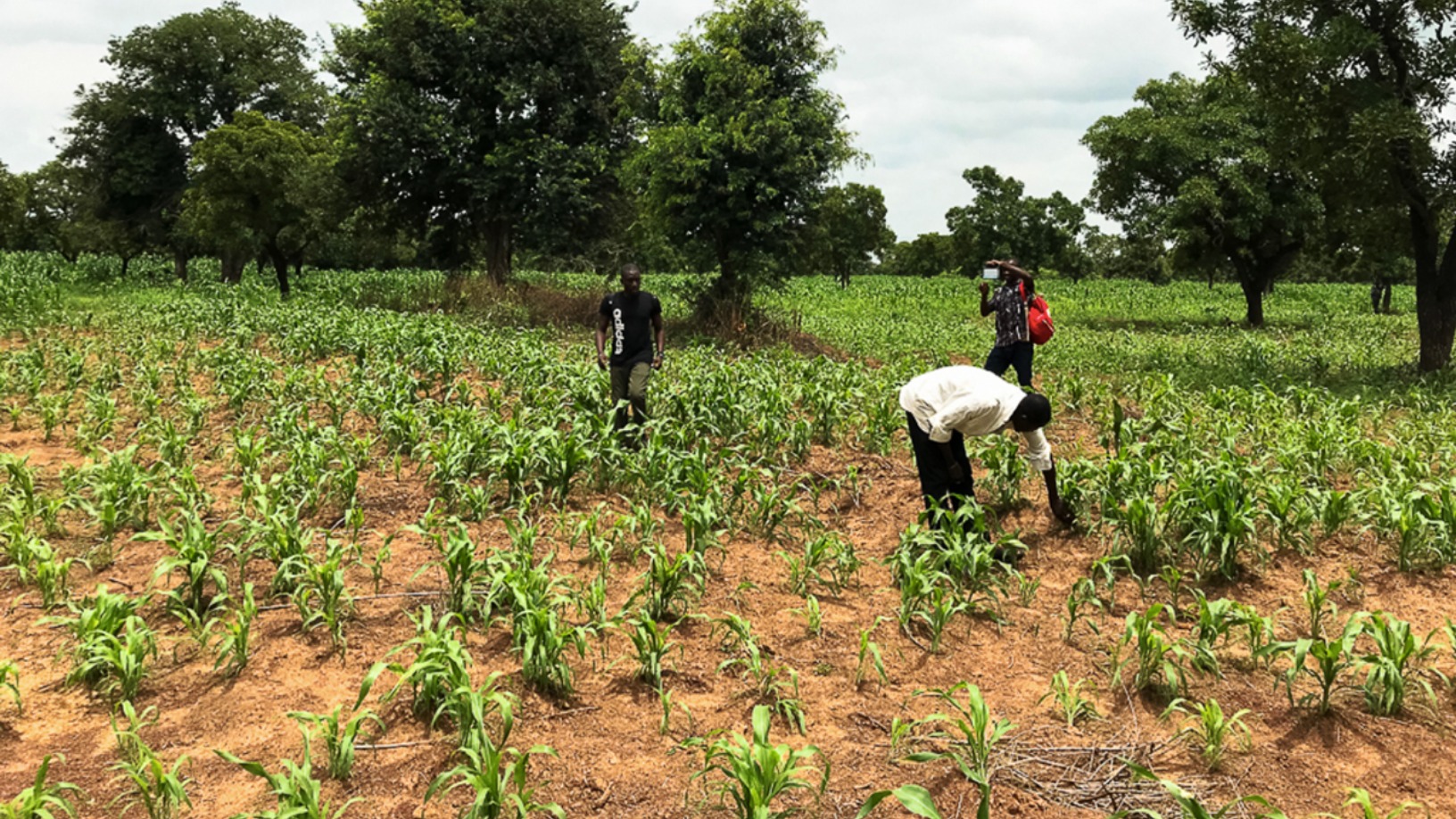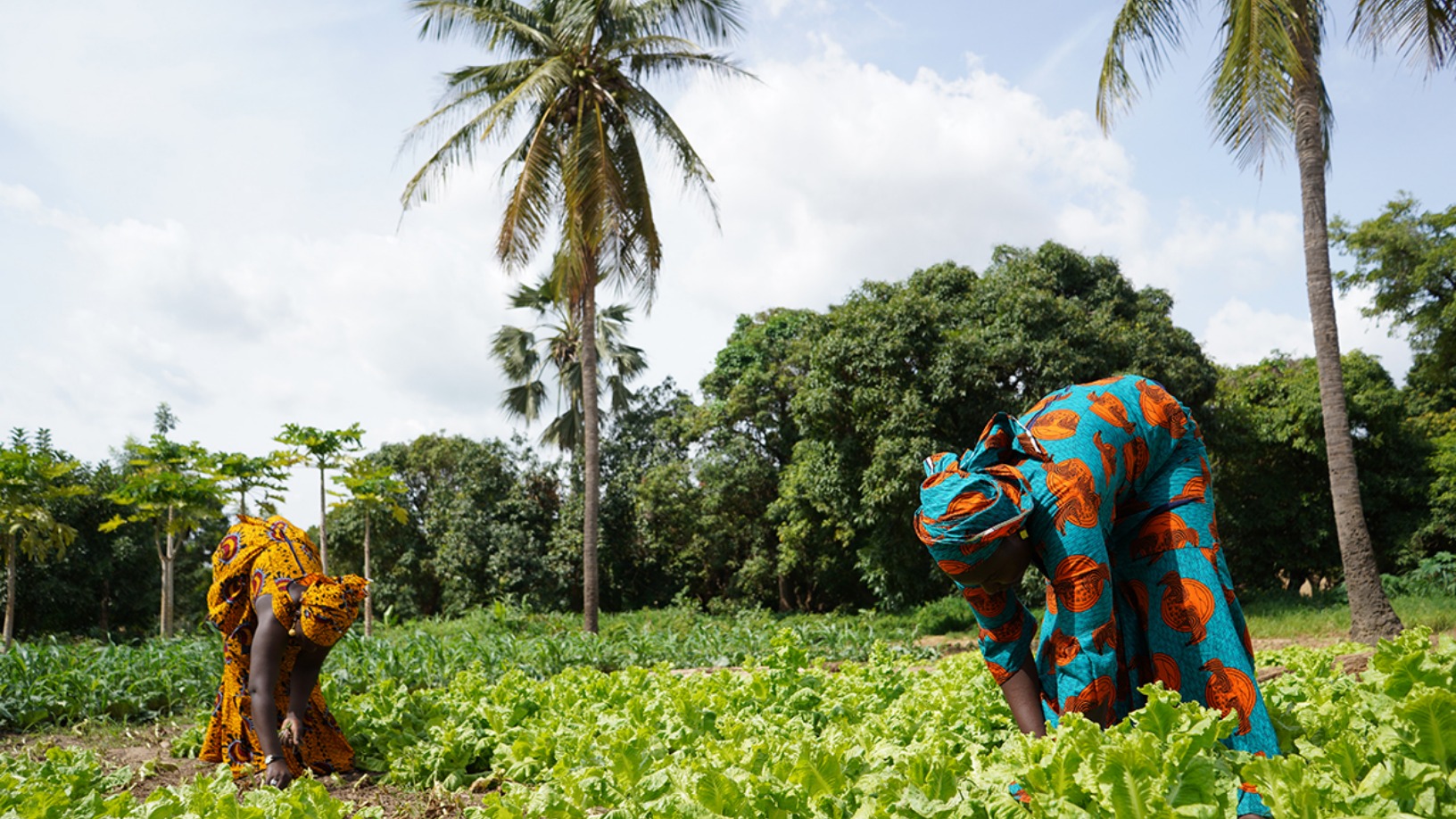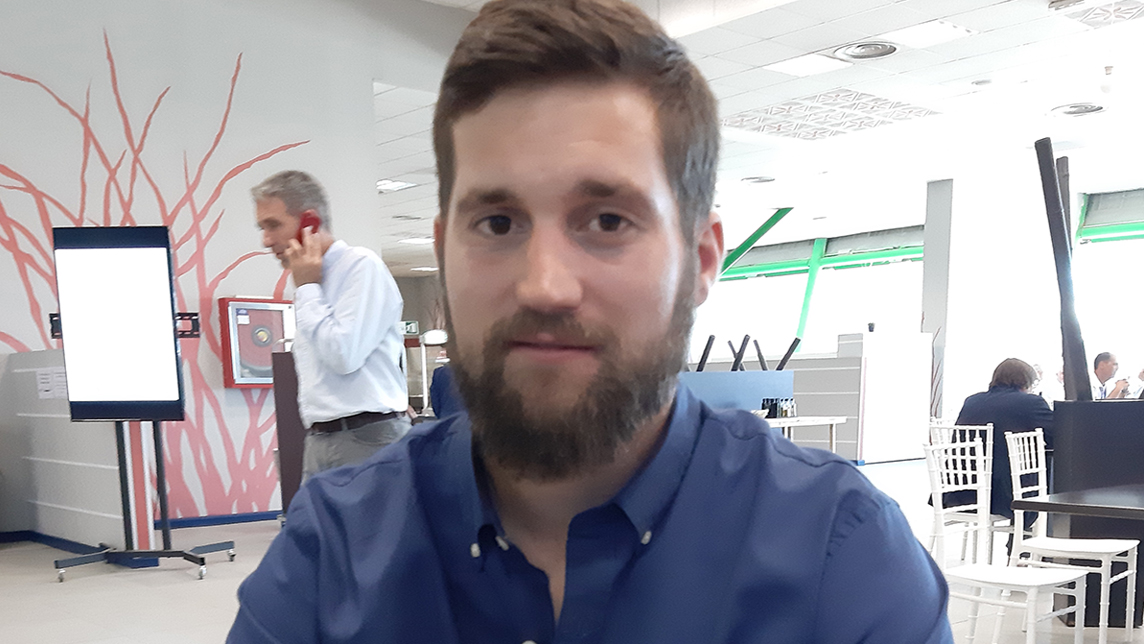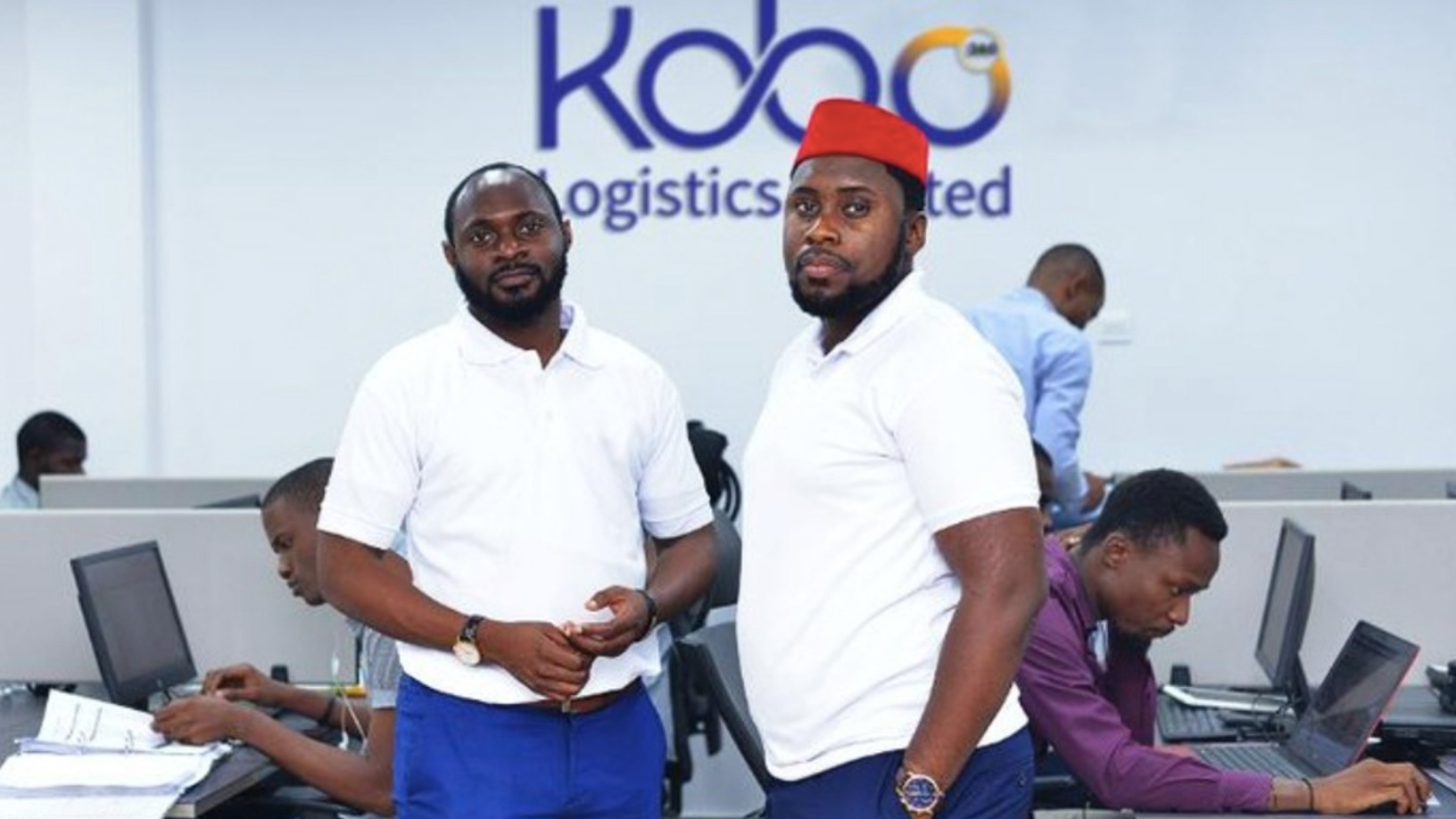Despite being home to 25% of the world's fertile land, Africa only accounts for 10% of the global agricultural output – mostly from subsistence farmers with little access to modern farming, trading or financing tools. However, with the right tools like credit finance and improved market access, sub-Saharan African smallholders, who comprise over 60% of the population, have the power to potentially triple the continent's agricultural output to around $880bn by 2030, according to McKinsey & Company.
In Ghana, the average farm size is only 0.4 hectares, over 400 times smaller than average farms in the US. Spotting the problem in Ghana’s fragmented smallholder farming sector, business partners Francis Obirikorang and Michael Ocansey decided to build a “cooperative” platform to reach out to Ghana's 4m subsistence farmers.
The ex-Esoko digital agency executives co-founded AgroCenta in 2016, with Obirikorang as CEO and Ocansey as CTO, to connect food manufacturers and supply chain companies to source local produce from rural smallholdings scattered across Ghana. However, despite commercial orders for maize and other commodities from beer brewery Guinness, the co-founders discovered that smallholders could not produce larger quantities as they lacked capital.
A fact-finding road trip to the northern regions of Ghana revealed insurmountable financial barriers faced by local farmers, especially women who account for over half of the subsistence smallholdings. Over 90% of the farmers could not access basic banking services and sold their limited output locally, depending on cash-only sales to traveling intermediaries at low prices.
“Anything that will enable farmers to earn more money, we are for it. And we do that in two ways; by helping farmers to sell at fair prices and helping them to expand their farms with access to finance, which they did not have before,” Ocansey said in a podcast.
AgroCenta quickly transformed into a social justice enterprise, enabling it to access impact funding from backers such as the Shell Foundation and government aid programs. Today, it has reached out to over 48,000 of Ghana's poorest farmers across five different regions, helping them to sell their produce to global companies like Diageo that owns Guinness. Headquartered in Mauritius, AgroCenta has offices in Accra and Bolgatanga in Ghana.
Agents for rural farmers
The startup provides its services via two apps, CropChain, its trading and supply-chain platform, and the mobile payment and financial inclusion platform LendIt, as well as via a network of locally-based agents in the rural areas where the farmers are based.
The field agents are invaluable as facilitators of the apps' services to the farmers, most of whom are illiterate without smartphones. The agents also collect farming data to help farmers boost crop yields, obtain fair and transparent marketprices and secure essential services from logistics and agricultural supplies companies.
Many smallholder farmers earn less than $1 a day. Many are also unbanked without any credit history, unable to get loans to buy fertilizers, let alone pay for their children's education. So AgroCenta decided to stop paying farmers in cash. Farmers are now paid digitally via partnerships with Ghana's two biggest mobile companies, Vodaphone and MTN.
“Now, all our farmers have a digital trail of earnings and have been forced to join the digital age to some degree through buying a simple mobile for payment,” Ocansey said. The “dumbphones” without smart capabilities are very cheap in Ghana, and AgroCenta’s agreement with Vodafone enables farmers to purchase a basic phone and pay for it over a period of time.
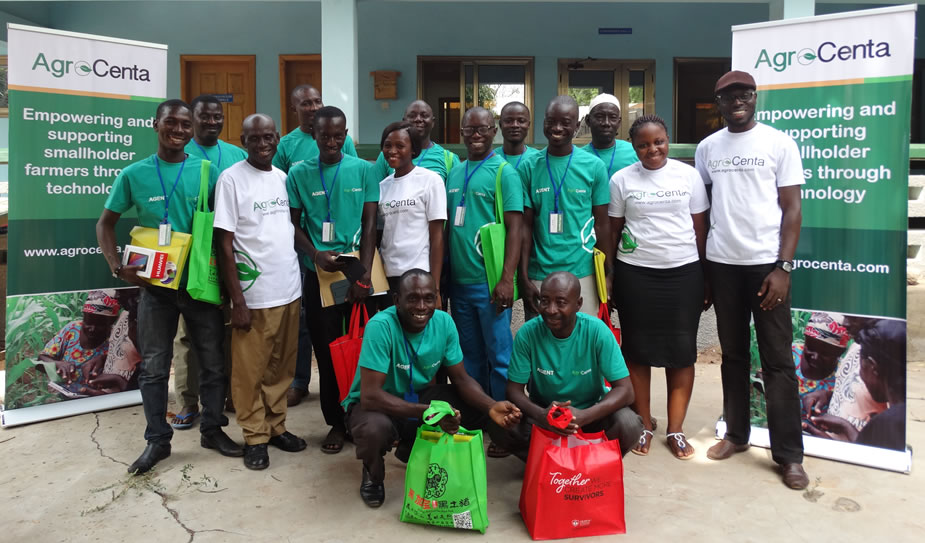
According to the startup, farmers on its platformhave increased average crop yields by 40% and average income by 35% and reduced food waste by 25%.
Co-op model
AgroCenta has also implemented an initiative to combat discrimination against women, who account for at least half of the agricultural workforce in Africa and are often excluded from land ownership. AgroCenta provides female farmers with rent-free land, farming equipment and advisory services. In addition, loans are also available for their children’s education.
All AgroCenta farmers are also obliged to join pension programs to ensure they don’t fall back into a poverty trap when they cannot work. "We want them to have the same right to a pension as corporate workers,” Ocansey said. AgroCenta partners with local pension and loan providers Enterprise Insurance and EcoBank to offer a wide range of financial products suitable for smallholders. These products include low-cost agricultural insurance to help farmers survive challenges from poor harvests or natural disasters like flooding or droughts.
Using a co-op business model, AgroCenta also buys direct from the smallholders, bundling small quantities of crops into large batches according to order quantities agreed with clients like Diageo and Ghana's Ministry of Food and Agriculture. Offtake contracts are also offered so that farmers don't have to wait for the harvest before finding a buyer.
“Though we are cutting out the middleman, we are in effect acting as a fair middleman,” Ocansey explained. This is because subsistence farmers lack information on fair market prices and access to urban markets that pay higher prices. The result is that they often end up selling at very low rates to unscrupulous intermediaries who take advantage of the logistical challenges faced by rural farming communities.
AgroCenta’s field agents also regularly visit the farmers and advise on improving crop yields and access to microfinance to expand commercial production. “We found that many farms are too small to fulfill big orders, so we thought we’ll help these farmers to expand their cultivated land area to at least five or 10 acres. The land is available, so the problem is not land but a lack of money for fertilizer,” Ocansey said.
Impact investments
In January this year, AgroCenta secured $790,000 in funding from social impact investors like the Shell Foundation, the UK’s Foreign, Commonwealth and Development Office, Dutch Rabobank’s Rabo Foundation, and US-based AV Ventures, co-founded by the Agricultural Cooperative Development International (ACDI) and Volunteers in Overseas Cooperative Assistance (VOCA).
At the end of 2018, AgroCenta received $650,000 in seed funding. In April 2018, it won first prize at the Seedstars Global Startup Competition. GSMA Ecosystem Accelerator also backed it with $250,000 to develop microfinance services for smallholders.
AgroCenta earns a flat-rate commission of 30% included in the selling price of the produce sold to corporate clients. It also collects and sells farming data to agro-partners like fertilizer and seed suppliers. Besides using field agents to increase its user base, newcomers are also attracted to the platform when they observe neighboring AgroCenta farmers achieving higher yields and prices for their crops.
Another potential sector for future expansion is commodities processing. But for now, AgroCenta will continue to scale crop production by growing its user base in Ghana and expanding across West Africa.
“Just in Ghana, we are looking to reach into the millions of users, and we aim to expand into other Francophone nations which are digitally behind Anglophone countries in the region,” Ocansey said.
